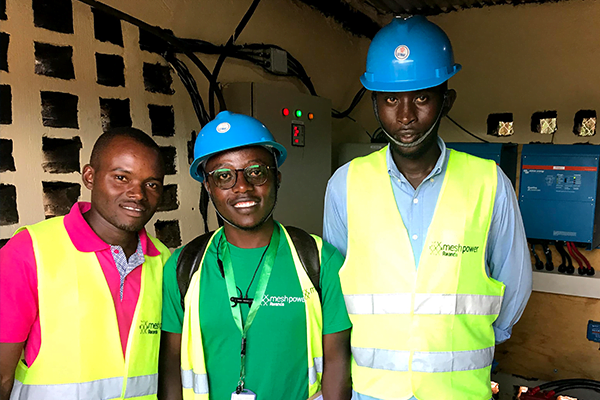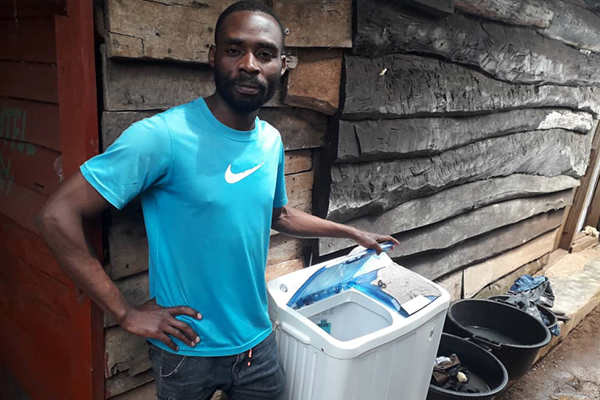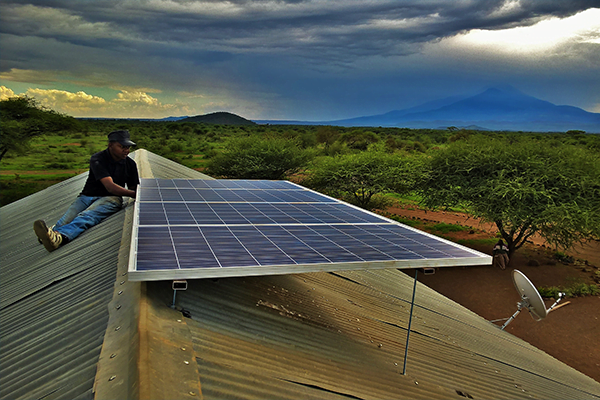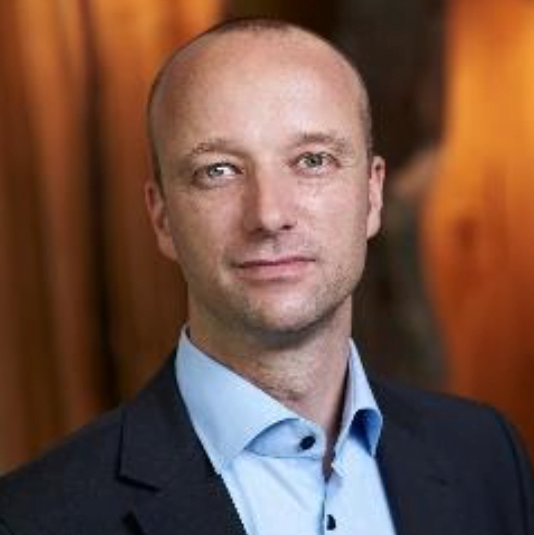
What does REDAVIA do?
REDAVIA was originally launched in 2010 and went through several evolutions. Since 2017, the company is primarily focused on providing solar energy solutions to businesses in West and East Africa.
They have developed standardised containerised solar energy generation and energy storage modules which can be integrated to on-grid or off-grid power supply solutions. These pre-configured units are installed on-site and managed by local specialists trained by REDAVIA. The units are modular and re-deployable which provides company with additional flexibility.
The units are typically leased to customers thereby greatly reducing the upfront investment and making access to solar energy more affordable for SMEs in Africa.
REDAVIA currently operates in Ghana, Kenya and Tanzania with key customers in sectors such as agri-foods processing, education and manufacturing.
What were the projects REDAVIA led with EEP Africa support?
In 2015, REDAVIA was already active in the B2B segment in Tanzania with a pilot containerised solar solution operating at an off-grid industrial site. To scale the company up, they needed to diversify to other industries in Tanzania, which were mostly located in on-grid areas. EEP Africa first supported REDAVIA in leveraging its existing commercial, technology and financing platforms to expand through other sectors and particularly to the food processing segment which suffered from frequent power outages and had a lot to gain from further mechanisation.
With the EEP grant and support from Energy 4 Impact, REDAVIA was able to secure two on-grid business customers in Tanzania: a sawmill in an agroforestry project and a poultry farm. Although both firms faced financial challenges and ended up not paying their leases, REDAVIA completed the solar installations and succeeded in distilling valuable insights from the projects about what it takes to scale up solar leasing for business successfully.
We learned a lot about the sales process, risk management and market conditions. We learned that we needed an in-country sales team. We also learned that we needed to lead with cost savings, you can’t just be green. We learned how to assess and manage the credit quality and payment behaviour of our customers. We learned that, with the right sales approach, the commercial and industrial business should scale very quickly in high-grid-price markets, such as Ghana and Kenya.
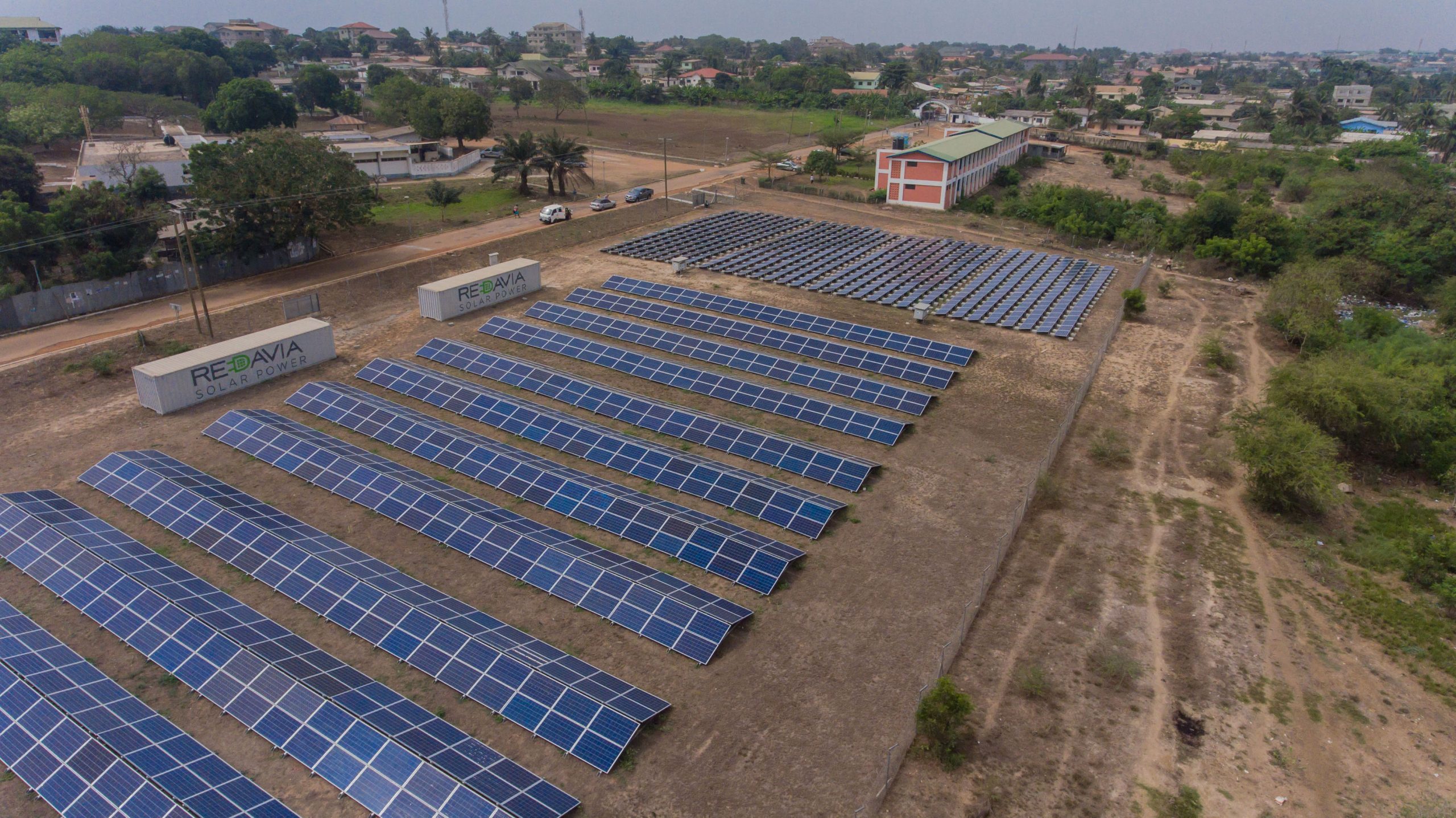
REDAVIA successfully applied these lessons to set up local sales forces in Ghana and Kenya, offering a cost-savings plus “green” value proposition to on-grid commercial and industrial, solid-credit SMEs.
In addition to the on-grid customers, the first EEP grant enabled REDAVIA to obtain its first client in the community mini-grid sector. In this vertical, REDAVIA intended to remain a B2B company leasing the solar plant to a local partner acting as a power distribution company to village households. As the project progressed, REDAVIA decided to forward-integrate and take over the distribution and customer service activity to improve quality of service to end-users. With a second EEP Grant, REDAVIA succeeded in building and operating the two largest community mini-grids in Tanzania with 100% digital-payment-enabled smart-meters, offering near-100% reliable, affordable power to over 500 off-grid households, bringing electrical light and phone-charging into their homes for the first time.
We decided we had to pick one of the two. The on-grid B2B business was already taking-off, but in the case of our two village mini-grids in Tanzania, we needed the average revenue per user to increase significantly and we needed to figure out how to really lower CAPEX costs if we were to scale this part of the business up.
The availability of reliable, affordable power, enabled several new businesses to spring up in the community, such as several electric maize mills, a chicken hatchery, a TV/movie-theatre and several shops, boosting local wealth creation.
While these village mini-grids were a strong social and environmental impact success, their financial metrics lagged far behind those of the on-grid business projects, making an immediate scale-up in this vertical a very risky prospect. Also, with the on-grid B2B business by now scaling up rapidly and being financially viable in Ghana, REDAVIA management became increasingly stretched between the two, quite different business lines.
To preserve the impact and give the village minigrids a better chance to scale over time, REDAVIA transferred the minigrids assets, plus its pipeline of additional villages to Husk Power Systems, a well-financed, pure-play village minigrid operator. This gives the minigrid business a chance to grow, while enabling REDAVIA to focus on scaling its on-grid industrial and commercial business in Ghana and Kenya.
What was the effect of EEP support on REDAVIA?
Despite challenging experiences in both projects, REDAVIA has been able to continuously grow. According to CEO Erwin Spolders, the lessons learned from the EEP projects were key in shaping REDAVIA into the business it is today
Without that grant, we would not have been here now. `{`…`}` The grant helped us understand a lot of things about the sales process and what B2B solar business could scale up. The lessons learned from this project eventually led us to re-focus our geographical scope and develop local sales teams in Ghana and Kenya. That’s how we’ve reached the product-market fit we are scaling up now. This experience was essential to our current path to success.
Where does REDAVIA stand now ?
Following lessons learned, in 2017, REDAVIA launched in Ghana with an in-country sales team and has since been growing fast.
REDAVIA has since been able to raise significant follow-on capital based on their current product-market fit including €3.5 million in equity, €5m in working capital debt, and over €2m in long-term solar farm funding, using an innovative and highly scalable debt funding platform.
The company now has a portfolio of 65 installed units for 22 customers in three countries exceeding 5MW installed capacity and claims to have cumulatively reduced CO2 emissions by 3,175 tonnes. Furthermore, by helping businesses and institutions save money on their electricity bill, REDAVIA has the potential to generate change on a broader scale.
Now we are a group of 17 people with solar farms in Ghana, Kenya and Tanzania reaching one million dollars in annualized contracted lease revenues earlier this year
A good example of this in their portfolio is the Regional Maritime University (RMU) in Accra. In order to reduce electricity costs, RMU sought a cost-saving solution that would allow them to invest the money saved on electricity into other aspects of the university. In November 2017, REDAVIA set up a 86kWp plant on the campus leading to immediate savings and the subsequent installation of 181 kWp in April 2018 and 168 kWp in October 2018 bringing the total to 435 kWp. Over the 12 years of the lease, the plant is expected to produce 7,200 MWh while reducing CO2 emissions by 3,098 tonnes and generating significant savings for the university. Furthermore, RMU will own the assets at the end of the 12-year period.
What lies ahead?
REDAVIA was recently the first company to sign an EEP Catalyst loan. The Catalyst window was launched in 2019 to provide follow-on debt financing to successful companies from the Innovation grant window and help bring commercially viable renewable energy solutions to scale. This loan will help REDAVIA finance its working capital and accelerate its growth.
The company expects to be EBITDA breakeven in early 2022. With the new financing commitment from EEP, REDAVIA expects to continue to scale-up it solar farm leasing model in Ghana and Kenya.
We have a relatively long working capital cycle. It takes about a month to manufacture, 2-3 months to ship, 1 month to get through customs and build and then we need to get three customer invoices paid to be able to refinance. We are way ahead in sales, but our bottleneck is the working capital, so the Catalyst working capital loan comes at the perfect time to help us accelerate our growth.
From Local Volunteer to National Operations Manager
Profile of Cleophas Ahishakiye, Operations Manager of Meshpower Rwanda...
Island Mini-grid Powers Local Businesses
Local entreprenuers on Kitobo Island highlight opportunities from Absolute Energy's mini-grid...
Solar Power for Arusha Secondary Schools
Instituto Oikos installs solar mini-grids at 14 secondary schools in Northern Tanzania...



